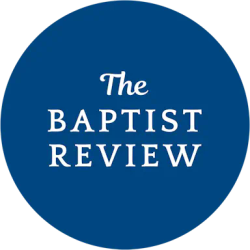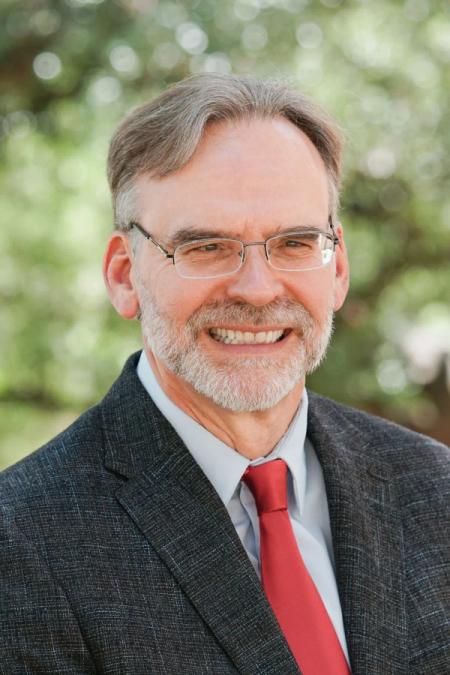The Bible provides profoundly positive teaching about the person and work of every Christian. It is imperative “for such a time as this” that we recall the responsibility of the churches to highlight and empower the proclamation ministries of all believers. We must recognize and affirm the speaking ministries of every Christian, including both the men and the women among us. As the Southern Baptist Convention resolved last year, the important role of Christian women must be reaffirmed at this moment.
After surveying some of the women who served the Lord through proclamation in the Holy Bible, we must address critical texts in Paul’s first letter to the Corinthians and in his first letter to Timothy. We conclude with a call to return the passion of our hearts to world evangelism.
A Scriptural Precis
In the Old Testament, Miriam, a prophetess, led the women of ancient Israel in public worship. God honored their praise and granted their words his authority by ensuring they were recorded in Scripture. Because the Holy Spirit inspired that record, godly men and women of every age have been led by these women to worship God together.
We find numerous women leading in ministry throughout the Hebrew Scriptures, not least among them Deborah, a prophet, poet, and judge. Huldah, another prophetess, took an important role in interpreting Scripture for the whole nation. Other important women included Sarah, Rebecca, and Rachel, alongside Rahab and Esther.
All these women took leading roles, demonstrating the Kingdom of God has only one authority in it. The one authority in the Kingdom is God himself, and he may sovereignly call whomever he pleases, even in societies which choose to give all official positions to men.
The Old Testament promise of Joel 2:28-32 provides an important bridge for the continuation of prophetic ministry into the Messianic era. Joel prophesied that God would pour out his Spirit on all persons, enabling both “sons and daughters to prophesy.”
Peter, in his Pentecost message, demonstrated the divine promise given through Joel was now fulfilled, making female proclamation normal for the church’s form of worship. Like all “persons” given the responsibility for prophecy, God called women to proclaim his Word by speaking it “to people for their strengthening, encouragement, and consolation” (1 Cor. 14:3).
Women were visible and prominent throughout the earthly ministry of the Lord. The list of leading women, both Jew and Gentile, in the lineage of Jesus is also not insignificant. Luke consistently mentions “some women” were instrumental in the support of Jesus’ ministry (cf. Luke 8:3). Noteworthy among the disciples of our Lord Jesus are Mary, Mary Magdalene, and Lydia, as well as Damaris, Chloe, and Phoebe, alongside Priscilla and Junia.
The Lord, upon his resurrection from the dead, commissioned several women, even before he commissioned anyone else, to proclaim the good news which saves (Luke 24:22-24). He also commanded women to instruct his male disciples regarding their next responsibility (Matt. 28:10).
The consistent mention of Priscilla with her husband Aquila denotes a ministry team. Priscilla played an important role in church planting and in discipling Apollos (Rom. 16:3). Chloe was sufficiently trusted by Paul, and the information she provided about the spiritual welfare of the church was used by the Holy Spirit. Through her, Paul discovered what he must instruct the Corinthian church (1 Cor. 1:11).
In the early church of Rome, Phoebe was commended as a diakonon (“servant” or “deacon”) of the church in Cenchreae (Rom. 16:1). Mary worked hard for the same church (v. 6). Junia was listed along with Andronicus as kinsman, fellow-prisoner, and “noteworthy among the apostles” (v. 7). Tryphaena, Tryphosa, and Persis were all affirmed as workers “in the Lord” (v. 12). Julia and the sister of Nereus were also singled out for greetings.
First Corinthians
Much attention has been given to the Corinthian prohibition against women speaking in the church (1 Cor. 14:34). But interpretation always requires canonical context. Paul’s prohibition must be interpreted particularly in the light of the proclamation he had already permitted to women in 1 Corinthians 11:5. This earlier statement clearly enabled a woman to pray and prophesy, if her “head” is appropriately covered.
Whatever the best interpretation of the head covering, it is clear the ultimate issue here regards the personal intention and attitude of the woman praying or prophesying. If she is “contentious” and desires only to exhibit her exalted status as a “spiritual” person, she has no right to speak in the church. Paul’s qualifying phrase, “nor have the churches of God,” suggests the early churches shared a tradition regarding what was acceptable in worship.
Returning to chapter 14, we must ask how the restriction to women speaking was understood in the light of the Apostle’s prior permission. Originally, this letter would have been read aloud in one setting. The separation of closely related texts now experienced in modernity’s liberal method of Bible study would never have occurred in the early church, for they would have heard Paul’s instructions in 1 Corinthians read in toto.
It is important to note that the restriction on women speaking is the third such restriction. Each restriction of speech in the congregation uses the same Greek word, sigato, and the first two restrictions do not specify the sex of the speaker. Paul informs both the speaker of a tongue that cannot be interpreted and the prophet who has been interrupted that they have forfeited their right to speak in the assembly.
It is obvious neither of these other two persons had as their goal the edification of the assembly. Instead, they were drawing attention to their supposed superior spirituality. This attitude mirrors that of the woman in chapter 11 whose head was not properly covered. Paul notes that God is not a God of confusion, so uninterpreted tongue speech, prophecy devoid of inspiration, and proud spirituality are equally prohibited.
The postbiblical numbering of the verses in our English text obscures the important linking of the qualifying phrase “as in all the churches of the saints” with the prohibition that “the women are to keep silent in the churches.” The phrase concerning “all the churches” links this passage to the church tradition already mentioned in 1 Corinthians 11:2 and 16.
In other words, the prohibition in 1 Corinthians 14:34 is not a universal prohibition against women praying or prophesying, in the same way that restrictions related to the specific tongue speaker or the interrupted prophet do not constitute universal prohibitions. These singular prohibitions against problematic speakers may not be used to silence all those involved in what were common church practices.
The prohibition in verse 34 must be received in the light of the established tradition of the churches, as seen in verse 36. Paul asks, tongue in cheek, if they stand alone by establishing their own tradition in these matters.
First Timothy
First Timothy 2:12 rightly informs Southern Baptists in their conviction that the office of the pastor should be restricted to men. In this passage, the important form of teaching under consideration is linked with pastoral oversight. The Greek conjuction oude, “nor,” is a hendiadys which describes the pastor’s authoritative oversight of the teaching in a church.
We agree with Thomas Lea, former Dean of the School of Theology at Southwestern Baptist Theological Seminary, when he concluded that Paul’s reference to teaching here “involved official doctrinal instruction in the Scriptures, and was a task delegated to the pastor-teacher.” Moreover, “It is more likely that Paul was banning disruptive behavior rather than enforcing complete silence on women in worship settings.”
This interpretation is coordinate with the immediate context of 1 Timothy 2:12. Paul soon after addressed the qualifications of the man who aspires to be an overseer (1 Tim. 3:1). The word “office,” it must be noted, is a translation choice. The term can also be understood as referring primarily to the work or role of overseer.
It is a matter of debate whether any of the various terms for the pastor—poimenas, episkopos, or presbyteros—were intended to be understood in the medieval sense of “offices,” or whether they should be used interchangeably to describe the various “functions” of the person providing leadership to the church. The majority of Southern Baptists therefore agree with the Baptist Faith and Message, which restricts the role of pastor to men.
Many scholars agree the terms used for the leader of the New Testament church are primarily descriptive of ministry roles and thus are often used interchangeably. This church leader is referred to as a “pastor” (poimenas) or an “elder” (presbyteros) who administers the church (episkopos). Presbyteros has roots in the Jewish synagogue; episkopos, in Greek culture. These terms are often understood to be descriptions of ministry in general, but they are particularly used to describe the leaders of the New Testament churches.
In other words, 1 Timothy 2:12 pertains to the work of the man Southern Baptists often call a lead pastor or senior pastor, although neither title is used in the New Testament. This elder, or overseer, is called by God and affirmed by the congregation to give overall leadership in the administration and instruction of the local church. We believe this function is restricted to men. Such an affirmation in no way cancels women speaking properly, leading, or ministering as other passages of Scripture clearly teach. 1 Corinthians 14:34 and 1 Timothy 2:12 address, respectively, the appropriate attitude and the appropriate function of a particular speaker.
Let’s Return to Our Ministry
With the Lord’s general command and these special distinctions in mind, we would like to remind Southern Baptists that, even as we maintain the integrity of the pastoral office, we must also maintain the integrity of the ministry of every Christian. Whether male or female, old or young, rich or poor, every believer has been given the responsibility to obey the Great Commission and proclaim the saving gospel to every person on earth. As both Scripture and the Baptist Faith and Message repeatedly teach, to fulfill our common calling every true disciple will seek to be a bold personal witness to all people by confessing Jesus as Lord publicly and privately without ceasing.
Jesus called each of us as his personal disciples to follow him and proclaim the truth about him. And, because Jesus the Christ is the only Lord and lawgiver in his church, we must obey him completely and without regard for humanly derived qualifications. Our church leaders are called to equip the saints for the work of the ministry which builds up the church until we reach full maturity in Christ, and we must do so at his command and for his glory alone (Eph. 4:11-13).
So, let’s all get busy working together to proclaim his perfect Word to a desperate world. The fields are white unto harvest, and we simply must get back to them. The more we focus on other issues takes from the time we should be focused on every believer’s primary responsibility to follow Jesus our only Lord into ministry. The day of the Lord is at hand, and the needs of the world are greater than any one church or ministry can meet on its own. Let those of us who are pastors and teachers call every believer—every man, every woman, and every child—to return to their God-given proclamation ministry.
Editor's Note: As a part of its commitment to fostering conversation within the Southern Baptist Convention, the Baptist Review may publish editorials that espouse viewpoints that are not necessarily shared by the TBR team or other contributors. We welcome submissions for responses and rebuttals to any editorials as we seek to host meaningful conversations about the present and future of our convention.

Join the Baptist Review for our Presidential Forum in Indianapolis on Monday, June 10 at 9pm. Registration is required for attendance.



